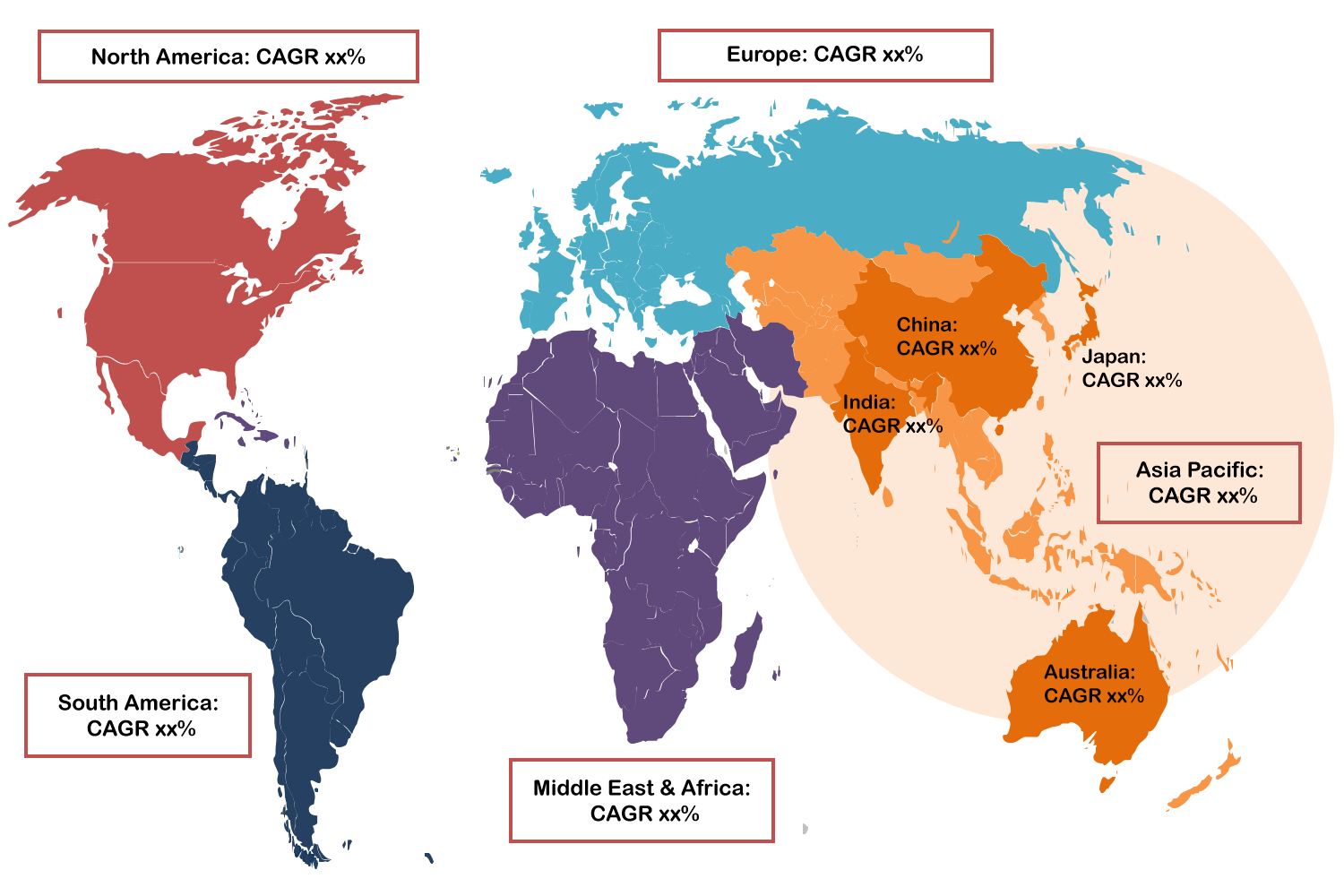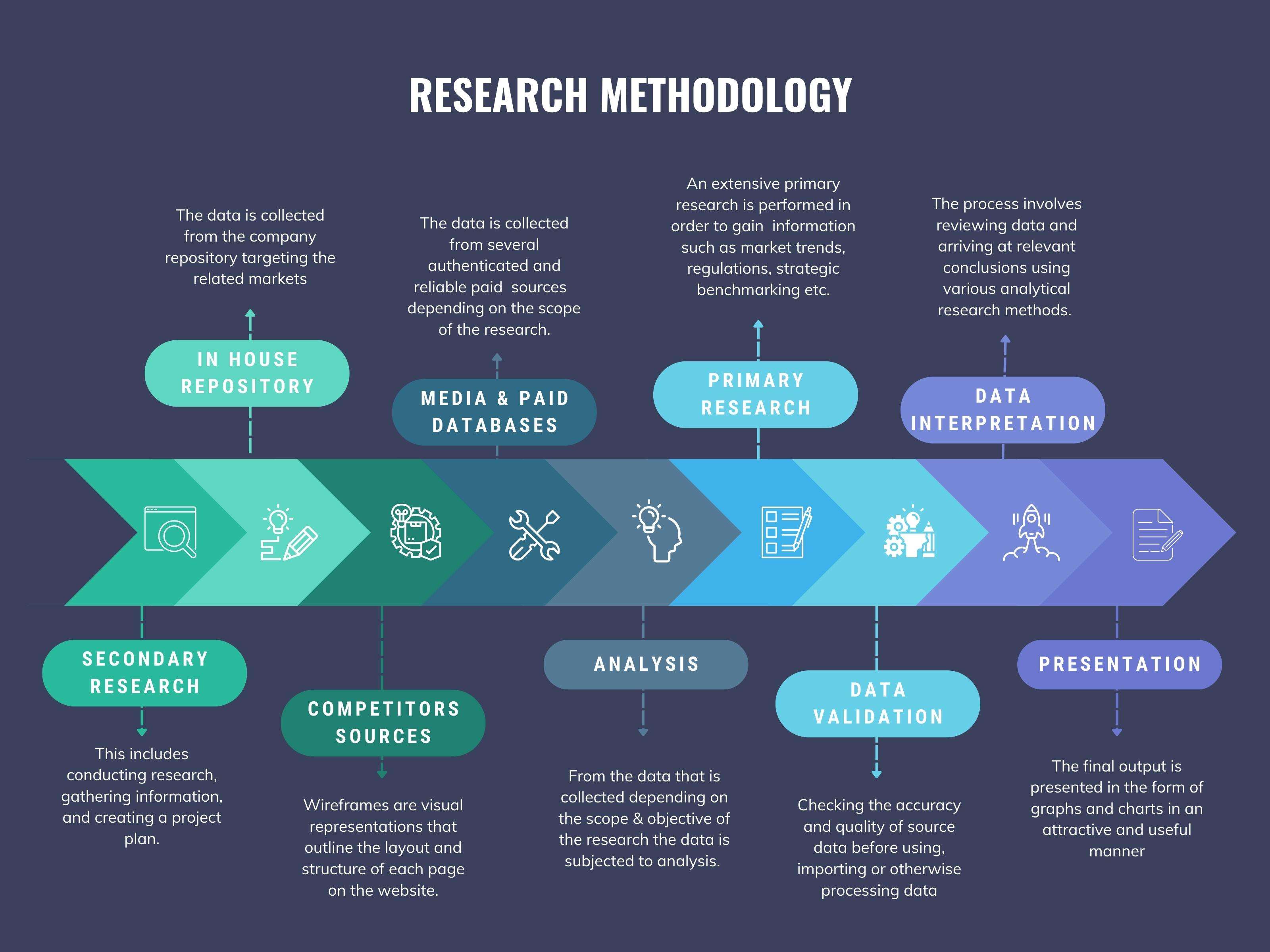
Manual Cutting Equipment Market
Manual Cutting Equipment Market Forecasts to 2030 - Global Analysis By Technology (Carbon Arc Cutting, Oxy-fuel, Plasma and Other Technologies), Application (Automotive and Transportation, Construction, Heavy Equipment Fabrication, Shipbuilding and Offshore and Other Applications) and By Geography

|
Years Covered |
2021-2030 |
|
Estimated Year Value (2023) |
US $1.9 BN |
|
Projected Year Value (2030) |
US $3.2 BN |
|
CAGR (2023 - 2030) |
7.3% |
|
Regions Covered |
North America, Europe, Asia Pacific, South America, and Middle East & Africa |
|
Countries Covered |
US, Canada, Mexico, Germany, UK, Italy, France, Spain, Japan, China, India, Australia, New Zealand, South Korea, Rest of Asia Pacific, South America, Argentina, Brazil, Chile, Middle East & Africa, Saudi Arabia, UAE, Qatar, and South Africa |
|
Largest Market |
North America |
|
Highest Growing Market |
Asia Pacific |
According to Stratistics MRC, the Global Manual Cutting Equipment Market is accounted for $1.9 billion in 2023 and is expected to reach $3.2 billion by 2030 growing at a CAGR of 7.3% during the forecast period. The term ""manual cutting equipment"" describes the instruments and apparatus used to cut a variety of materials, including fabric, metal, wood, and plastic. These cutting tools do not need automated processes or power sources to function; they are operated manually. Additionally, the market caters to sectors like agriculture, where manual cutting tools are utilized for tasks such as pruning and harvesting crops. As advancements continue to enhance the precision and usability of manual cutting equipment, its importance in various industries remains steadfast, contributing to productivity, quality assurance, and craftsmanship in diverse applications.
According to the American Iron and Steel Institute, raw steel production was 1.84 million net tons while the capability utilization rate was 83% in June 2021.

Market Dynamics:
Driver:
Rise in infrastructure projects
As countries worldwide invest in upgrading and expanding their infrastructure, such as roads, bridges, railways, and buildings, the demand for manual cutting tools intensifies. Manual cutting equipment, including saws, torches, and plasma cutters, are essential for various construction tasks like metal fabrication, steel cutting, and concrete shaping. These tools enable workers to precisely cut and shape materials according to project specifications, ensuring structural integrity and quality. Moreover, as infrastructure projects often involve large-scale construction and maintenance activities, manual cutting equipment remains indispensable for professionals across various trades.
Restraint:
High initial investment
Manual cutting equipment, ranging from basic hand tools to more advanced machinery, often demands a substantial upfront financial commitment from businesses and individuals. This financial barrier can deter potential buyers, particularly small enterprises and hobbyists with limited budgets, from investing in manual cutting equipment. The cost of ancillary equipment, such as safety gear and maintenance tools, further adds to the overall investment. However, the high initial investment can also prolong the replacement cycle for outdated or inefficient equipment, inhibiting market growth as businesses may delay upgrading or expanding their cutting capabilities.
Opportunity:
Technological advancements
Continuous innovations in blade materials, ergonomic designs, and precision control mechanisms enhance the efficiency, accuracy, and usability of manual cutting tools. For instance, the development of high-performance blades with superior durability and cutting precision allows for smoother and more efficient cutting processes across various materials. Additionally, advancements in ergonomic designs aim to improve user comfort and reduce operator fatigue, leading to enhanced productivity and safety in the workplace. Moreover, integration of digital technologies such as computer numerical control (CNC) systems and automation features further augment the capabilities of manual cutting equipment, enabling precise, repeatable cuts with minimal human intervention.
Threat:
Economic uncertainty
Fluctuations in the global economy, such as trade tensions, geopolitical risks, and economic downturns, can disrupt business investment decisions and overall demand for manual cutting equipment. Uncertainty surrounding factors like raw material prices, exchange rates, and government policies can make businesses hesitant to make capital expenditures in new equipment. In times of economic instability, companies may delay or scale back their expansion plans, leading to reduced demand for manual cutting equipment. However, uncertain economic conditions can impact consumer confidence and purchasing power, further dampening demand for products that rely on manual cutting processes.
Covid-19 Impact:
The widespread lockdowns, supply chain disruptions, and economic downturns resulted in reduced industrial activity across many sectors, leading to decreased demand for manual cutting equipment. Manufacturing facilities faced closures or reduced operations, causing delays in capital expenditures and project implementations. Additionally, restrictions on movement and social distancing measures affected the availability of skilled labor for operating manual cutting equipment, further hampering production capacities. Uncertainty surrounding the duration and severity of the pandemic also prompted businesses to postpone investment decisions, impacting the market's growth trajectory.
The carbon arc cutting segment is expected to be the largest during the forecast period
Carbon Arc Cutting segment is expected to be the largest during the forecast period. CAC offers a cost-effective and efficient method for cutting various materials, particularly metals, in industries ranging from construction to automotive. Its simplicity and versatility make it an attractive option for manual cutting operations, especially in settings where precision and speed are paramount. Additionally, the robustness and reliability of CAC equipment contribute to its growing popularity among operators seeking durable solutions for their cutting needs.
The heavy equipment fabrication segment is expected to have the highest CAGR during the forecast period
Heavy Equipment Fabrication segment is expected to have the highest CAGR during the forecast period. As demand grows for heavy machinery and equipment across industries such as construction, mining, and agriculture, there's a corresponding need for precise and efficient cutting methods during fabrication processes. Manual cutting equipment, particularly plasma cutters and oxy-fuel cutting systems, play a pivotal role in shaping and assembling the structural components of heavy equipment. Their ability to accurately cut through thick metal plates and diverse materials while maintaining high productivity levels makes them indispensable tools in fabrication workshops.
Region with largest share:
Owing to an increasing demand for cutting equipment, the popularity of do-it-yourself trends, consumer preference for independent services, a labor scarcity, and high labor prices, North America region commanded the largest share of the market throughout the extrapolated period of time. Due to the increasing number of nuclear families in the United States currently, there is a greater need for manual cutting equipment for remodeling and gardening projects nationwide.
Region with highest CAGR:
Due to the rapid industrialization across countries like China, India, and Japan has led to increased demand for manual cutting tools in various manufacturing sectors such as automotive, aerospace, and construction, Asia Pacific region is poised to witness profitable growth over the projection period. Furthermore, favorable government initiatives supporting manufacturing and industrial growth, along with rising disposable incomes, have bolstered investments in manual cutting equipment.

Key players in the market
Some of the key players in Manual Cutting Equipment market include Air Liquide SA, Colfax Corporation, Fronius International GmbH, GCE Group AB, Genstar Technologies Company, Inc., Illinois Tool Works, Inc., Lincoln Electric Company, Linde Group, Matheson Tri-Gas, Inc. and Messer Group GmbH.
Key Developments:
In September 2023, Enovis, the medical technology company headquartered in Wilmington’s suburbs, has reached a deal to acquire global orthopedics technology company LimaCorporate for nearly $850 million.
In February 2022, Messer Cutting Systems acquired Flame Technologies, Inc., a U.S.-based manufacturer of products in the oxyfuel sector. With Flame Tech, Messer Cutting Systems strengthens its position as an international solution provider of oxyfuel, steel mill, and pre-heating solutions.
Technologies Covered:
• Carbon Arc Cutting
• Oxy-fuel
• Plasma
• Other Technologies
Applications Covered:
• Automotive and Transportation
• Construction
• Heavy Equipment Fabrication
• Shipbuilding and Offshore
• Other Applications
Regions Covered:
• North America
o US
o Canada
o Mexico
• Europe
o Germany
o UK
o Italy
o France
o Spain
o Rest of Europe
• Asia Pacific
o Japan
o China
o India
o Australia
o New Zealand
o South Korea
o Rest of Asia Pacific
• South America
o Argentina
o Brazil
o Chile
o Rest of South America
• Middle East & Africa
o Saudi Arabia
o UAE
o Qatar
o South Africa
o Rest of Middle East & Africa
What our report offers:
- Market share assessments for the regional and country-level segments
- Strategic recommendations for the new entrants
- Covers Market data for the years 2021, 2022, 2023, 2026, and 2030
- Market Trends (Drivers, Constraints, Opportunities, Threats, Challenges, Investment Opportunities, and recommendations)
- Strategic recommendations in key business segments based on the market estimations
- Competitive landscaping mapping the key common trends
- Company profiling with detailed strategies, financials, and recent developments
- Supply chain trends mapping the latest technological advancements
Free Customization Offerings:
All the customers of this report will be entitled to receive one of the following free customization options:
• Company Profiling
o Comprehensive profiling of additional market players (up to 3)
o SWOT Analysis of key players (up to 3)
• Regional Segmentation
o Market estimations, Forecasts and CAGR of any prominent country as per the client's interest (Note: Depends on feasibility check)
• Competitive Benchmarking
Benchmarking of key players based on product portfolio, geographical presence, and strategic alliances
Table of Contents
1 Executive Summary
2 Preface
2.1 Abstract
2.2 Stake Holders
2.3 Research Scope
2.4 Research Methodology
2.4.1 Data Mining
2.4.2 Data Analysis
2.4.3 Data Validation
2.4.4 Research Approach
2.5 Research Sources
2.5.1 Primary Research Sources
2.5.2 Secondary Research Sources
2.5.3 Assumptions
3 Market Trend Analysis
3.1 Introduction
3.2 Drivers
3.3 Restraints
3.4 Opportunities
3.5 Threats
3.6 Technology Analysis
3.7 Application Analysis
3.8 Emerging Markets
3.9 Impact of Covid-19
4 Porters Five Force Analysis
4.1 Bargaining power of suppliers
4.2 Bargaining power of buyers
4.3 Threat of substitutes
4.4 Threat of new entrants
4.5 Competitive rivalry
5 Global Manual Cutting Equipment Market, By Technology
5.1 Introduction
5.2 Carbon Arc Cutting
5.3 Oxy-fuel
5.4 Plasma
5.5 Other Technologies
6 Global Manual Cutting Equipment Market, By Application
6.1 Introduction
6.2 Automotive and Transportation
6.3 Construction
6.4 Heavy Equipment Fabrication
6.5 Shipbuilding and Offshore
6.6 Other Applications
7 Global Manual Cutting Equipment Market, By Geography
7.1 Introduction
7.2 North America
7.2.1 US
7.2.2 Canada
7.2.3 Mexico
7.3 Europe
7.3.1 Germany
7.3.2 UK
7.3.3 Italy
7.3.4 France
7.3.5 Spain
7.3.6 Rest of Europe
7.4 Asia Pacific
7.4.1 Japan
7.4.2 China
7.4.3 India
7.4.4 Australia
7.4.5 New Zealand
7.4.6 South Korea
7.4.7 Rest of Asia Pacific
7.5 South America
7.5.1 Argentina
7.5.2 Brazil
7.5.3 Chile
7.5.4 Rest of South America
7.6 Middle East & Africa
7.6.1 Saudi Arabia
7.6.2 UAE
7.6.3 Qatar
7.6.4 South Africa
7.6.5 Rest of Middle East & Africa
8 Key Developments
8.1 Agreements, Partnerships, Collaborations and Joint Ventures
8.2 Acquisitions & Mergers
8.3 New Product Launch
8.4 Expansions
8.5 Other Key Strategies
9 Company Profiling
9.1 Air Liquide SA
9.2 Colfax Corporation
9.3 Fronius International GmbH
9.4 GCE Group AB
9.5 Genstar Technologies Company, Inc.
9.6 Illinois Tool Works, Inc.
9.7 Lincoln Electric Company
9.8 Linde Group
9.9 Matheson Tri-Gas, Inc.
9.10 Messer Group GmbH
List of Tables
1 Global Manual Cutting Equipment Market Outlook, By Region (2021-2030) ($MN)
2 Global Manual Cutting Equipment Market Outlook, By Technology (2021-2030) ($MN)
3 Global Manual Cutting Equipment Market Outlook, By Carbon Arc Cutting (2021-2030) ($MN)
4 Global Manual Cutting Equipment Market Outlook, By Oxy-fuel (2021-2030) ($MN)
5 Global Manual Cutting Equipment Market Outlook, By Plasma (2021-2030) ($MN)
6 Global Manual Cutting Equipment Market Outlook, By Other Technologies (2021-2030) ($MN)
7 Global Manual Cutting Equipment Market Outlook, By Application (2021-2030) ($MN)
8 Global Manual Cutting Equipment Market Outlook, By Automotive and Transportation (2021-2030) ($MN)
9 Global Manual Cutting Equipment Market Outlook, By Construction (2021-2030) ($MN)
10 Global Manual Cutting Equipment Market Outlook, By Heavy Equipment Fabrication (2021-2030) ($MN)
11 Global Manual Cutting Equipment Market Outlook, By Shipbuilding and Offshore (2021-2030) ($MN)
12 Global Manual Cutting Equipment Market Outlook, By Other Applications (2021-2030) ($MN)
13 North America Manual Cutting Equipment Market Outlook, By Country (2021-2030) ($MN)
14 North America Manual Cutting Equipment Market Outlook, By Technology (2021-2030) ($MN)
15 North America Manual Cutting Equipment Market Outlook, By Carbon Arc Cutting (2021-2030) ($MN)
16 North America Manual Cutting Equipment Market Outlook, By Oxy-fuel (2021-2030) ($MN)
17 North America Manual Cutting Equipment Market Outlook, By Plasma (2021-2030) ($MN)
18 North America Manual Cutting Equipment Market Outlook, By Other Technologies (2021-2030) ($MN)
19 North America Manual Cutting Equipment Market Outlook, By Application (2021-2030) ($MN)
20 North America Manual Cutting Equipment Market Outlook, By Automotive and Transportation (2021-2030) ($MN)
21 North America Manual Cutting Equipment Market Outlook, By Construction (2021-2030) ($MN)
22 North America Manual Cutting Equipment Market Outlook, By Heavy Equipment Fabrication (2021-2030) ($MN)
23 North America Manual Cutting Equipment Market Outlook, By Shipbuilding and Offshore (2021-2030) ($MN)
24 North America Manual Cutting Equipment Market Outlook, By Other Applications (2021-2030) ($MN)
25 Europe Manual Cutting Equipment Market Outlook, By Country (2021-2030) ($MN)
26 Europe Manual Cutting Equipment Market Outlook, By Technology (2021-2030) ($MN)
27 Europe Manual Cutting Equipment Market Outlook, By Carbon Arc Cutting (2021-2030) ($MN)
28 Europe Manual Cutting Equipment Market Outlook, By Oxy-fuel (2021-2030) ($MN)
29 Europe Manual Cutting Equipment Market Outlook, By Plasma (2021-2030) ($MN)
30 Europe Manual Cutting Equipment Market Outlook, By Other Technologies (2021-2030) ($MN)
31 Europe Manual Cutting Equipment Market Outlook, By Application (2021-2030) ($MN)
32 Europe Manual Cutting Equipment Market Outlook, By Automotive and Transportation (2021-2030) ($MN)
33 Europe Manual Cutting Equipment Market Outlook, By Construction (2021-2030) ($MN)
34 Europe Manual Cutting Equipment Market Outlook, By Heavy Equipment Fabrication (2021-2030) ($MN)
35 Europe Manual Cutting Equipment Market Outlook, By Shipbuilding and Offshore (2021-2030) ($MN)
36 Europe Manual Cutting Equipment Market Outlook, By Other Applications (2021-2030) ($MN)
37 Asia Pacific Manual Cutting Equipment Market Outlook, By Country (2021-2030) ($MN)
38 Asia Pacific Manual Cutting Equipment Market Outlook, By Technology (2021-2030) ($MN)
39 Asia Pacific Manual Cutting Equipment Market Outlook, By Carbon Arc Cutting (2021-2030) ($MN)
40 Asia Pacific Manual Cutting Equipment Market Outlook, By Oxy-fuel (2021-2030) ($MN)
41 Asia Pacific Manual Cutting Equipment Market Outlook, By Plasma (2021-2030) ($MN)
42 Asia Pacific Manual Cutting Equipment Market Outlook, By Other Technologies (2021-2030) ($MN)
43 Asia Pacific Manual Cutting Equipment Market Outlook, By Application (2021-2030) ($MN)
44 Asia Pacific Manual Cutting Equipment Market Outlook, By Automotive and Transportation (2021-2030) ($MN)
45 Asia Pacific Manual Cutting Equipment Market Outlook, By Construction (2021-2030) ($MN)
46 Asia Pacific Manual Cutting Equipment Market Outlook, By Heavy Equipment Fabrication (2021-2030) ($MN)
47 Asia Pacific Manual Cutting Equipment Market Outlook, By Shipbuilding and Offshore (2021-2030) ($MN)
48 Asia Pacific Manual Cutting Equipment Market Outlook, By Other Applications (2021-2030) ($MN)
49 South America Manual Cutting Equipment Market Outlook, By Country (2021-2030) ($MN)
50 South America Manual Cutting Equipment Market Outlook, By Technology (2021-2030) ($MN)
51 South America Manual Cutting Equipment Market Outlook, By Carbon Arc Cutting (2021-2030) ($MN)
52 South America Manual Cutting Equipment Market Outlook, By Oxy-fuel (2021-2030) ($MN)
53 South America Manual Cutting Equipment Market Outlook, By Plasma (2021-2030) ($MN)
54 South America Manual Cutting Equipment Market Outlook, By Other Technologies (2021-2030) ($MN)
55 South America Manual Cutting Equipment Market Outlook, By Application (2021-2030) ($MN)
56 South America Manual Cutting Equipment Market Outlook, By Automotive and Transportation (2021-2030) ($MN)
57 South America Manual Cutting Equipment Market Outlook, By Construction (2021-2030) ($MN)
58 South America Manual Cutting Equipment Market Outlook, By Heavy Equipment Fabrication (2021-2030) ($MN)
59 South America Manual Cutting Equipment Market Outlook, By Shipbuilding and Offshore (2021-2030) ($MN)
60 South America Manual Cutting Equipment Market Outlook, By Other Applications (2021-2030) ($MN)
61 Middle East & Africa Manual Cutting Equipment Market Outlook, By Country (2021-2030) ($MN)
62 Middle East & Africa Manual Cutting Equipment Market Outlook, By Technology (2021-2030) ($MN)
63 Middle East & Africa Manual Cutting Equipment Market Outlook, By Carbon Arc Cutting (2021-2030) ($MN)
64 Middle East & Africa Manual Cutting Equipment Market Outlook, By Oxy-fuel (2021-2030) ($MN)
65 Middle East & Africa Manual Cutting Equipment Market Outlook, By Plasma (2021-2030) ($MN)
66 Middle East & Africa Manual Cutting Equipment Market Outlook, By Other Technologies (2021-2030) ($MN)
67 Middle East & Africa Manual Cutting Equipment Market Outlook, By Application (2021-2030) ($MN)
68 Middle East & Africa Manual Cutting Equipment Market Outlook, By Automotive and Transportation (2021-2030) ($MN)
69 Middle East & Africa Manual Cutting Equipment Market Outlook, By Construction (2021-2030) ($MN)
70 Middle East & Africa Manual Cutting Equipment Market Outlook, By Heavy Equipment Fabrication (2021-2030) ($MN)
71 Middle East & Africa Manual Cutting Equipment Market Outlook, By Shipbuilding and Offshore (2021-2030) ($MN)
72 Middle East & Africa Manual Cutting Equipment Market Outlook, By Other Applications (2021-2030) ($MN)
List of Figures
RESEARCH METHODOLOGY

We at ‘Stratistics’ opt for an extensive research approach which involves data mining, data validation, and data analysis. The various research sources include in-house repository, secondary research, competitor’s sources, social media research, client internal data, and primary research.
Our team of analysts prefers the most reliable and authenticated data sources in order to perform the comprehensive literature search. With access to most of the authenticated data bases our team highly considers the best mix of information through various sources to obtain extensive and accurate analysis.
Each report takes an average time of a month and a team of 4 industry analysts. The time may vary depending on the scope and data availability of the desired market report. The various parameters used in the market assessment are standardized in order to enhance the data accuracy.
Data Mining
The data is collected from several authenticated, reliable, paid and unpaid sources and is filtered depending on the scope & objective of the research. Our reports repository acts as an added advantage in this procedure. Data gathering from the raw material suppliers, distributors and the manufacturers is performed on a regular basis, this helps in the comprehensive understanding of the products value chain. Apart from the above mentioned sources the data is also collected from the industry consultants to ensure the objective of the study is in the right direction.
Market trends such as technological advancements, regulatory affairs, market dynamics (Drivers, Restraints, Opportunities and Challenges) are obtained from scientific journals, market related national & international associations and organizations.
Data Analysis
From the data that is collected depending on the scope & objective of the research the data is subjected for the analysis. The critical steps that we follow for the data analysis include:
- Product Lifecycle Analysis
- Competitor analysis
- Risk analysis
- Porters Analysis
- PESTEL Analysis
- SWOT Analysis
The data engineering is performed by the core industry experts considering both the Marketing Mix Modeling and the Demand Forecasting. The marketing mix modeling makes use of multiple-regression techniques to predict the optimal mix of marketing variables. Regression factor is based on a number of variables and how they relate to an outcome such as sales or profits.
Data Validation
The data validation is performed by the exhaustive primary research from the expert interviews. This includes telephonic interviews, focus groups, face to face interviews, and questionnaires to validate our research from all aspects. The industry experts we approach come from the leading firms, involved in the supply chain ranging from the suppliers, distributors to the manufacturers and consumers so as to ensure an unbiased analysis.
We are in touch with more than 15,000 industry experts with the right mix of consultants, CEO's, presidents, vice presidents, managers, experts from both supply side and demand side, executives and so on.
The data validation involves the primary research from the industry experts belonging to:
- Leading Companies
- Suppliers & Distributors
- Manufacturers
- Consumers
- Industry/Strategic Consultants
Apart from the data validation the primary research also helps in performing the fill gap research, i.e. providing solutions for the unmet needs of the research which helps in enhancing the reports quality.
For more details about research methodology, kindly write to us at info@strategymrc.com
Frequently Asked Questions
In case of any queries regarding this report, you can contact the customer service by filing the “Inquiry Before Buy” form available on the right hand side. You may also contact us through email: info@strategymrc.com or phone: +1-301-202-5929
Yes, the samples are available for all the published reports. You can request them by filling the “Request Sample” option available in this page.
Yes, you can request a sample with your specific requirements. All the customized samples will be provided as per the requirement with the real data masked.
All our reports are available in Digital PDF format. In case if you require them in any other formats, such as PPT, Excel etc you can submit a request through “Inquiry Before Buy” form available on the right hand side. You may also contact us through email: info@strategymrc.com or phone: +1-301-202-5929
We offer a free 15% customization with every purchase. This requirement can be fulfilled for both pre and post sale. You may send your customization requirements through email at info@strategymrc.com or call us on +1-301-202-5929.
We have 3 different licensing options available in electronic format.
- Single User Licence: Allows one person, typically the buyer, to have access to the ordered product. The ordered product cannot be distributed to anyone else.
- 2-5 User Licence: Allows the ordered product to be shared among a maximum of 5 people within your organisation.
- Corporate License: Allows the product to be shared among all employees of your organisation regardless of their geographical location.
All our reports are typically be emailed to you as an attachment.
To order any available report you need to register on our website. The payment can be made either through CCAvenue or PayPal payments gateways which accept all international cards.
We extend our support to 6 months post sale. A post sale customization is also provided to cover your unmet needs in the report.
Request Customization
We provide a free 15% customization on every purchase. This requirement can be fulfilled for both pre and post sale. You may send your customization requirements through email at info@strategymrc.com or call us on +1-301-202-5929.
Note: This customization is absolutely free until it falls under the 15% bracket. If your requirement exceeds this a feasibility check will be performed. Post that, a quote will be provided along with the timelines.
WHY CHOOSE US ?

Assured Quality
Best in class reports with high standard of research integrity

24X7 Research Support
Continuous support to ensure the best customer experience.

Free Customization
Adding more values to your product of interest.

Safe & Secure Access
Providing a secured environment for all online transactions.

Trusted by 600+ Brands
Serving the most reputed brands across the world.
